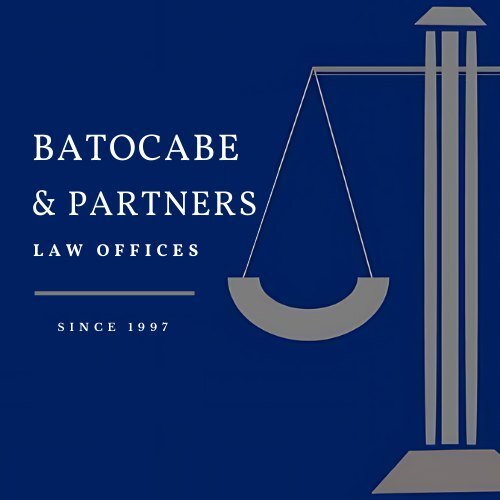Best Pension Lawyers in Pasig
Share your needs with us, get contacted by law firms.
Free. Takes 2 min.
List of the best lawyers in Pasig, Philippines
About Pension Law in Pasig, Philippines
Pension systems in Pasig, Philippines, are governed by a combination of national and local regulations designed to ensure that retirees receive financial support after their working years. The pension programs primarily consist of the Social Security System (SSS) for private employees and the Government Service Insurance System (GSIS) for public sector employees. There are also optional pension schemes and private retirement plans offered by various financial institutions. Understanding these systems and ensuring compliance with local laws can be complex, necessitating legal assistance in some instances.
Why You May Need a Lawyer
Navigating pension laws and ensuring maximum benefits can be challenging. Here are some common situations where legal assistance might be required:
- Disputes over pension eligibility or benefit amounts.
- Complex cases involving multiple pension plans.
- Issues related to the transfer of pensions and benefits when changing employers or on international assignments.
- Ensuring compliance with tax laws related to pension benefits.
- Drawing up private retirement plans or dealing with insolvency of providers.
- Handling estate and inheritance issues related to pension benefits.
Local Laws Overview
Pasig, being part of the National Capital Region, adheres to national regulations, primarily governed by the Social Security Act and other related legislation. Here are some key aspects relevant to pension law:
- The Social Security System (SSS) provides coverage for private sector employees, including pension, death, disability, and retirement benefits.
- The Government Service Insurance System (GSIS) offers similar benefits for public sector workers.
- Employees and employers contribute to these programs as mandated by law.
- Recent reforms have impacted contribution rates and benefit calculations, aiming to make the system more sustainable.
- There are also mandatory provident funds and private pension plans for additional coverage, subject to strict government regulations.
Frequently Asked Questions
How do I know if I am eligible for a pension?
Eligibility for a pension usually depends on factors such as age, length of service, and contributions made to systems like SSS or GSIS. Checking with these institutions directly or consulting a lawyer can provide specific guidance based on your circumstances.
Can I receive pensions from both SSS and GSIS?
Typically, SSS is for private sector employees and GSIS is for public sector employees. If you have worked in both sectors, it might be possible to receive benefits from both, but this depends on your contributions and employment history.
What happens to my pension if I move abroad?
Pension benefits can generally still be received if you move abroad, but it is important to notify the SSS or GSIS and ensure compliance with any applicable international agreements.
How are pension benefits calculated?
Benefits are calculated based on your contributions, total years of service, and average salary during your employment. Each scheme has specific formulas for determining the exact benefit amount.
What should I do if my pension claim is denied?
If your claim is denied, you should first review the denial notice for specific reasons. You can then file an appeal with the respective agency (SSS or GSIS) or seek legal advice for further action.
How can I increase my retirement benefits?
You may increase your benefits by making voluntary contributions, extending your years of service, or opting for private retirement plans that supplement national systems.
Is pension income taxable?
In the Philippines, pension income is generally non-taxable, but there may be exceptions. It's advisable to confirm with a tax professional or legal advisor.
What types of retirement plans are available in the Philippines?
In addition to SSS and GSIS, you can consider personal retirement accounts, provident funds, private insurance plans, and employer-sponsored retirement schemes.
Can my pension be used as collateral for loans?
Generally, pensions are not allowed to be used as collateral for loans due to legal restrictions imposed on these funds to protect retirees’ financial health.
How can I ensure my pension plan is legitimate?
To verify a pension plan's legitimacy, check if the provider is registered with the relevant government agencies, such as the Insurance Commission or the Banko Sentral ng Pilipinas.
Additional Resources
These resources can provide additional information or assistance:
- Social Security System (SSS) - For private sector pension inquiries.
- Government Service Insurance System (GSIS) - For public sector pension concerns.
- Department of Labor and Employment (DOLE) - For employment rights and pensions.
- Banko Sentral ng Pilipinas (BSP) - For information on registered financial institutions offering retirement products.
Next Steps
If you require further legal assistance regarding pension issues in Pasig, consider the following steps:
- Consult with a lawyer who specializes in employment or pension law.
- Gather all relevant documentation and records related to your employment and contributions.
- Contact your respective pension provider (SSS or GSIS) to know more about your benefits.
- Visit local government offices or legal aid societies for pro bono advice if needed.
Lawzana helps you find the best lawyers and law firms in Pasig through a curated and pre-screened list of qualified legal professionals. Our platform offers rankings and detailed profiles of attorneys and law firms, allowing you to compare based on practice areas, including Pension, experience, and client feedback.
Each profile includes a description of the firm's areas of practice, client reviews, team members and partners, year of establishment, spoken languages, office locations, contact information, social media presence, and any published articles or resources. Most firms on our platform speak English and are experienced in both local and international legal matters.
Get a quote from top-rated law firms in Pasig, Philippines — quickly, securely, and without unnecessary hassle.
Disclaimer:
The information provided on this page is for general informational purposes only and does not constitute legal advice. While we strive to ensure the accuracy and relevance of the content, legal information may change over time, and interpretations of the law can vary. You should always consult with a qualified legal professional for advice specific to your situation.
We disclaim all liability for actions taken or not taken based on the content of this page. If you believe any information is incorrect or outdated, please contact us, and we will review and update it where appropriate.














